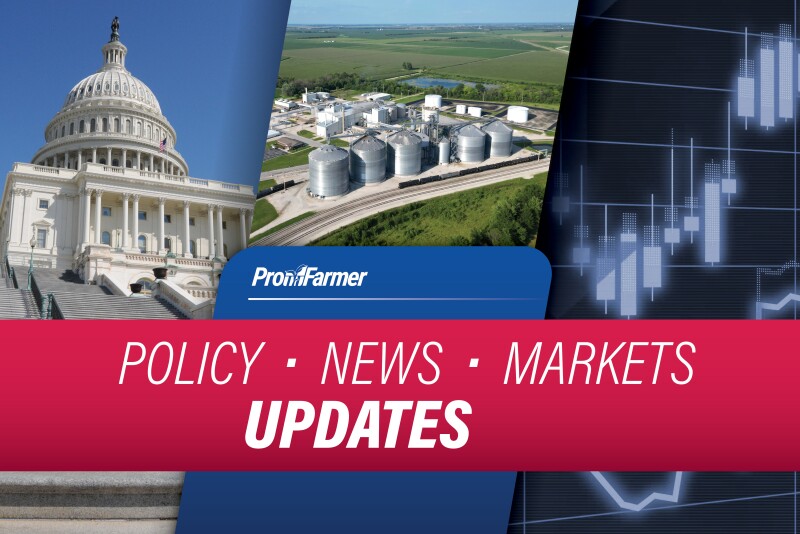USDA weighs “bridge” policy to support farmers until new safety nets kick in (Progressive Farmer): Yesterday, Deputy Agriculture Secretary Stephen Vaden told farmers at the Farm Progress Show that USDA is considering a short-term “bridge” policy to support crop producers struggling with low prices until new safety-net provisions in the One Big Beautiful Bill take effect. While the updated Price Loss Coverage (PLC) and Agricultural Risk Coverage (ARC) programs, along with expanded crop insurance subsidies, are expected to provide stronger protection, those changes won’t kick in until the 2025-26 crop year and 2026 payments.
Vaden emphasized that farmers face a gap between now and then, and USDA is weighing ways to carry producers through until those enhanced supports are available. He also noted that Secretary Brooke Rollins was briefing President Trump on the state of the farm economy heading into harvest, underscoring the administration’s focus on market expansion, trade enforcement, and bridging near-term challenges.
Soybean farmers face uncertainty as harvest approaches without China orders (Agri-Pulse): North Dakota farmers are just weeks away from soybean harvest, but China — historically their biggest buyer — hasn’t purchased a single bushel of the 2024 crop. Local cash bids have dropped to $9.09 per bushel, about $1.40 under futures, reflecting the absence of Chinese demand. The gap is sharper than normal because China is imposing tariffs on U.S. beans that are 20% higher than those on South American supplies. Historically, about half of North Dakota’s soybeans moved to China through Pacific Northwest ports, leaving farmers in the region particularly exposed.
Analysts say China is relying on Brazil instead, stockpiling more than 30 million metric tons and booking shipments through November. That means China may not need U.S. beans at all this fall, using the situation as leverage in trade talks with the Trump administration. At best, farmers may see only a narrow marketing window between late November and January, depending on Brazil’s planting pace. Trade negotiations are ongoing — with a top Chinese trade official in Washington this week, according to news reports — but uncertainty continues to weigh on farm prices and planning.
60 agriculture groups back bill to upgrade rural roads and bridges (Morning Ag Clips): The Fertilizer Institute (TFI) announced that 60 farm and agribusiness groups are backing new legislation — the Agricultural and Rural Road Improvement Program Act (H.R. 4585). Introduced by Representatives Mike Bost and Josh Riley, the bill would invest in upgrading rural roads and bridges that farmers and ag suppliers depend on to move crops, livestock, and inputs.
In a letter to House Transportation & Infrastructure leaders, the coalition highlighted how many rural routes are outdated, weight-limited, or undersized, creating bottlenecks in the critical first and last miles between farms, highways, and ag facilities. Supporters say the improvements are vital to both rural communities and the broader farm economy.

